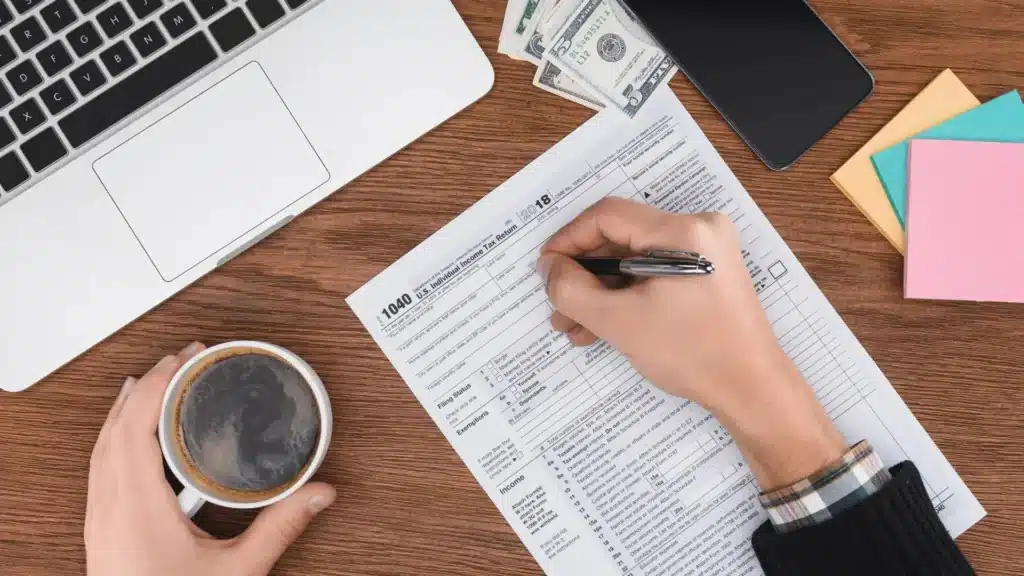Table of Contents
Most employers offer Flexible Spending Accounts (FSAs) in their health benefits. An FSA allows employees to use funds for medical costs without tax deductions. However, switching jobs, getting fired, or moving can complicate using an FSA. They offer a great way to save on healthcare costs using pre-tax dollars—but what happens to FSA money when you leave a job? Many employees are surprised to learn that FSA funds don’t always follow you when your employment ends.
With strict rules and time-sensitive deadlines, it’s easy to lose access to unspent money if you’re not prepared. In this guide, we’ll break down exactly what happens to your FSA when you leave a job, clear up common misconceptions, and share tips to help you protect your hard-earned funds during a job transition.
What is a Flexible Spending Account (FSA)?
The FSA is a special account for employees, set up by the IRS. It allows pre-tax savings for healthcare and dependent care. Eligible expenses include coinsurance, drug copays, dental care, and childcare.
Employees can utilize their earnings minus tax earnings, helping in cost-cutting. Many FSA accounts tend to have a ‘use it or lose it’ policy. This means any leftover money at the year’s end is lost. However, some plans may allow a grace period or limited rollover.
One of the biggest advantages of an FSA is the presence of tax relief. This is because contributions are made out of gross income leading to a decrease in taxable income and therefore lowering expenses incurred on medical caretaking.
Read related blog: FSA vs HSA: Choose the Best for You
How FSAs are Linked to Your Employment
Flexible Spending Accounts (FSAs) are typically offered by employers. You can only use an FSA if your employer provides one. Employees can use pre-tax deductions to fund it. When changing jobs, you will lose access to your FSA funds. Any leftover money vanishes unless spent on pre-retirement expenses.
Some employers offer Consolidated Omnibus Budget Reconciliation Act (COBRA) and other benefits, extending FSA use. FSAs also cover ailments. There is a plan year for changing contributions. Adjustments are needed during breaks or after events like childbirth or marriage.
What Happens to Unused FSA Funds When You Leave
Leaving a job can impact your FSA funds. If you leave your job early and have money left in your FSA, it usually goes back to your employer unless you make special arrangements. Some employers provide a grace period or a run-out period. These allow former employees to claim expenses from their employment time. However, these options differ by employer.
Options for Using FSA Funds Before Leaving
Even if employees plan to resign and lose FSA funds, they must use the fund first. Here are tips to avoid wasting FSA funds:
- Schedule Medical Appointments: Use FSA funds for medical, dental, or vision visits before your last workday. Services must be completed before you leave.
- Purchase Eligible Health Products: Purchase eligible OTC items such as first-aid supplies, pain relievers, and certain prescription medications that comply with FSA guidelines.
- Pay for Dependent Care: If you have a dependent care FSA, use it for daycare, afterschool, or elder care. Pay all claims for these expenses before leaving your job.
- Consider COBRA Continuation: If offered, COBRA may let you continue your FSA contributions after leaving. It would allow you to use the funds for a limited time post-employment.
Understanding COBRA and FSA Continuation
COBRA allows former employees to keep health benefits, including their FSA. However, this can be tricky and pricey. To maintain their FSA under COBRA, individuals must cover all costs, including the employer’s part. This coverage only lasts until the plan year ends. No new contributions or withdrawals are allowed. Despite COBRA’s promise of support, it falls short for small FSAs.
Read related blog: How to Quit Your Job and Still Make Money
Strategies to Maximize Your FSA Benefits
Here are some strategies:
- Plan Contributions Carefully: Before joining an FSA, estimate your medical costs and contribute wisely. Don’t over-contribute; you might lose unused funds.
- Track Eligible Expenses: Keep a list of eligible FSA expenses. Use it to make qualifying purchases with your funds throughout the year.
- Look for Grace Periods: Some employers provide a grace period. This allows you to use FSA funds for a few months after the plan year ends. If available, make sure to use it.
Conclusion
Using an FSA during job changes needs careful planning. First, understand how FSAs tie to your job and what happens to leftover money. This knowledge helps you maximize benefits. Before leaving, use your FSA funds. If you need coverage, consider COBRA.
Beem offers solutions for simplifying FSAs and other benefits during job transitions. It is a platform that more than 5 million Americans trust. You can get all the help you need with understanding and navigating FSAs or resources for filing your taxes. Plan budgets, send and receive money, invest in personal loans and retirement plans, and find more options on this digital wallet app! Download here.
FAQs on What Happens To FSA Money When You Leave A Job?
What happens to my FSA money if I quit my job?
If you leave your job, you will lose unused FSA money. This is unless your employer offers a grace period. However, under COBRA, you can keep using your FSA for the rest of the year. You’ll just need to pay the full cost.
Can I continue using my FSA after leaving my job?
Yes, you can keep your FSA after leaving a job if you choose COBRA coverage. However, you’ll need to pay the full contribution cost. Also, the FSA will only last until the plan year ends.
How can I use up my FSA funds before leaving a job?
Before leaving a job, use FSA funds. Schedule medical appointments, buy eligible items, and refill prescriptions. Check your balance and eligible expenses to avoid losing funds.














































